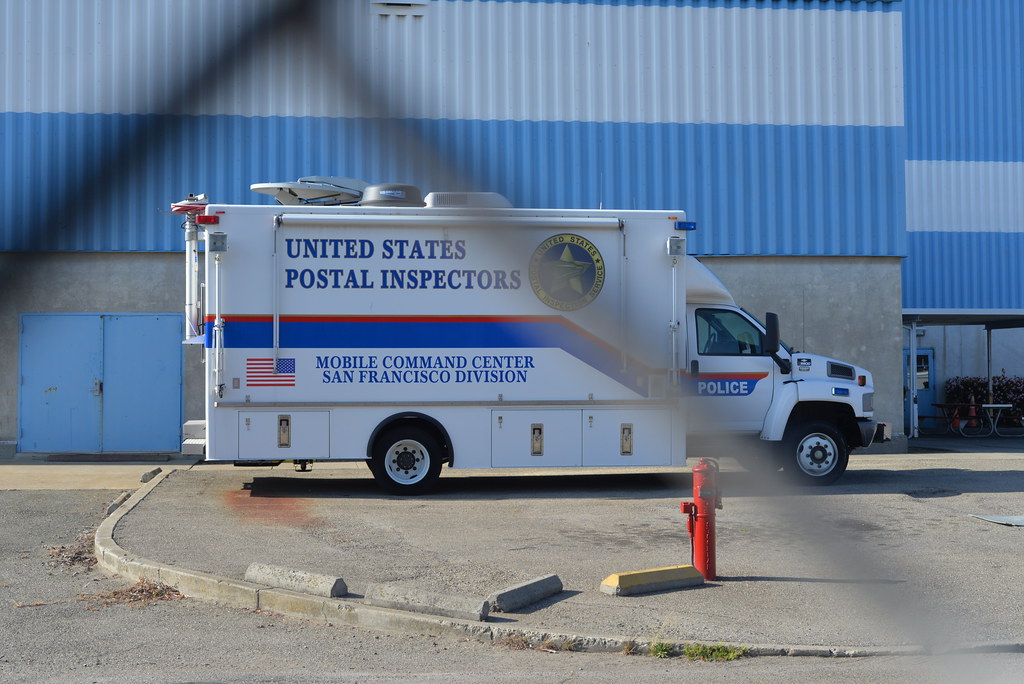Why the Postal Service Is Critical to National Security
A lack of USPS funding could affect not only mail delivery but also a number of other Postal Service functions as well—including law enforcement and disaster response.

Published by The Lawfare Institute
in Cooperation With

The United States Postal Service (USPS) is America’s favorite federal agency: In 2019, 74 percent of Americans said the Postal Service’s work is “good” or “excellent.” But this popularity has not immunized the Postal Service from economic hardship. As a result of the coronavirus pandemic, mail volume is expected to decline by as much as 60 percent. And Postmaster General Megan Brennan has stated that without support from the federal government—which has yet to settle on how best to fund the organization—the USPS may run out of cash by the end of September.
The primary goal of the USPS is to deliver mail to every mailbox in the United States, six days a week. But a lack of USPS funding could affect not only mail delivery but also a number of other Postal Service functions as well—including law enforcement and disaster response. The USPS’s postal inspectors work to deter and investigate mail-related crimes. And the Postal Service also plays a critical role in protecting national security interests. The enormous infrastructure operated by the USPS, which delivers and processes 48 percent of the world’s mail, is a unique federal asset that can be—and has been—utilized to respond to natural disasters and terrorist attacks.
Various policy options have been proposed to address the Postal Service’s financial situation, including privatization, direct cash injections and low-interest loans. In order to fully understand the effects of each proposed policy, it’s worth reviewing the various roles the Postal Service plays.
Responding to Natural Disasters
In the aftermath of major natural disasters, the Postal Service has played an essential role in facilitating communication and coordinating disaster relief—particularly, in recent times, when electronic means of communication are inoperable. This occurred in the aftermath of Hurricane Katrina when the storm knocked out more than 3 million customer phone lines in Louisiana, Mississippi, and Alabama and pushed 50 percent of area radio stations and 44 percent of area television stations off the air. During that disaster, the federal government relied on the USPS to reestablish communications, reopen commerce and deliver government information. For example, with radio and television stations inoperable, the Federal Emergency Management Agency was struggling to inform families about the government benefits available to them—but with the Postal Service’s help, FEMA was able to deliver informational flyers to every home explaining how to take advantage of the agency’s support.
Additionally, USPS’s Address Management System (AMS)—a database of all addresses and residents in the United States—provided the federal government with a usable listing of nearly every person living in the affected areas. The system was used to reconnect displaced persons and deliver medicine and government relief funds. Without this, relief efforts would have been significantly hampered.
Postal Inspectors
There are several significant public safety concerns related to the delivery of mail, including mail fraud, identity theft and terrorism. The United States Postal Inspection Service (USPIS), the law enforcement arm of the USPS, is the federal entity primarily responsible for deterring and investigating mail crimes. In fiscal 2019, the USPIS’s nearly 1,300 postal inspectors made 5,759 arrests and obtained 4,995 criminal convictions.
The 2001 anthrax attacks demonstrate just how devastating mail crime can be. After an estimated eight anthrax-laden letters were sent via the USPS, 22 individuals were infected, five died (including two postal workers), and an estimated 30,000 persons were given prophylactic antibiotic treatment. Postal inspectors and the USPS played a key role in responding to the attacks. The USPIS undertook a years-long investigation in conjunction with the FBI that involved more than 10,000 interviews and 5,750 grand jury subpoenas. As the investigation progressed, the USPS implemented two surveillance systems to help mitigate the effects of a future attack. The USPS’s Biohazard Detection System now tests air particles above mail processing equipment. And the USPS’s Intelligent Mail system tracks the entire postal network, allowing the USPIS to reconstruct the path of any mail found to be contaminated.
The federal government regularly relies on the USPS to protect the integrity of the nation’s mail system, particularly in advance of large public gatherings such as sporting events, the State of the Union or political party conventions. Certain public gatherings (such as the Super Bowl) are certified as National Special Security Events when they are assessed to be attractive targets for terrorists or assassins because of their visibility or political prominence. The USPIS plays an integral role in protecting these large, public events. In preparation for the 2020 Super Bowl, the USPIS deployed its Mobile Mail Screening Station to Miami. This allowed the USPIS to screen every package that was sent to the football stadium, ensuring that the Super Bowl could not be compromised through the mail. Furthermore, the Postal Service removed blue collection boxes throughout Miami, Miami Beach and the neighboring town of Davie to reduce the risk that an explosive device could be hidden inside a USPS collection box. The Postal Service’s ability to locate and quickly remove each mailbox supported the federal government’s efforts to ensure the safety of the event.
Additionally, the USPIS has developed creative methods to proactively educate the public about the dangers of mail fraud. For example, since 2016, the USPIS has helped produce the Emmy Award-winning TV show “The Inspectors.” Each episode (drawing an average of more than 1 million viewers) is structured to educate the audience about consumer fraud and how Americans can reduce their risk of being victimized by mail fraud.
Responding to a Biological Attack
The USPS would play a critical role in the aftermath of a large-scale biological attack. As Garrett Graff explains, under Executive Order 13527, the USPS may be activated to deliver emergency medical supplies to individuals in the affected area. In such a situation, the USPS may rely on its AMS database to ensure every address in the affected area receives the appropriate amount of medical supplies. Currently, the Postal Service is the designated deliverer in 72 cities to deliver medicine in the aftermath of a biological attack. And in the future, the Postal Service could utilize this plan to deliver vaccines to all Americans in response to COVID-19 or any other novel disease affecting Americans.
Significant planning and resources have gone into preparing for this scenario. After the enactment of Executive Order 13527, the departments of Health and Human Services, Defense, and Justice and the USPS cooperatively produced a National Postal Model for the Delivery of Medical Countermeasures. And already, large-scale training exercises have occurred in Seattle, Philadelphia and Boston to prepare for such a scenario.
What Changes Have Been Proposed?
Congress and the president are continuing to debate what the future of the Postal Service might look like. Each policy is likely to have different effects on the Postal Service’s national security functions.
Some politicians are supporting cash injections, which are unlikely to significantly alter the structure of the Postal Service. House Democrats are currently seeking $25 billion in emergency funding. However, the President has indicated he may veto any legislation that would provide direct support to the Postal Service.
Additionally, Congress is considering legislation that would help improve the Postal Service’s liquidity. In February, a bipartisan coalition in the House passed the USPS Fairness Act, which would eliminate the requirement that the USPS prefund its employees’ future retirement health care benefits. While this act would improve the USPS’s balance sheets, the Postal Service does not believe it will be enough to solve its liquidity issues. The Postal Service may also look at cost-cutting measures, though the USPS’s workforce has already lost more than 125,000 positions since 2009.
The recently enacted CARES Act enables the USPS to access a $10 billion loan. But Treasury Secretary Steven Mnuchin is reportedly hoping to use the loan as leverage to force the USPS to raise its package-shipping rates and to demand concessions from the American Postal Workers Union, and the president has separately declared that the USPS will not receive any loan money unless it agrees to quadruple its package delivery prices.
Finally, at least some commentators and think tanks believe that the Postal Service should be privatized. These proposals often note that the private sector is capable of delivering mail and that privatization efforts have worked for the postal systems in other countries such as Germany and the United Kingdom. It’s difficult to accurately predict how these various proposals might affect the USPS’s national security functions. Cash injections are unlikely to require significant changes from the USPS. However, conditional loans, cost-cutting measures, and privatization efforts are all likely to result in at least some changes to the USPS’s operations. The USPS does not simply provide mail delivery to the American public—any changes to the USPS’s operations could impact the Postal Service’s national security functions.



.jpg?sfvrsn=676ddf0d_7)

